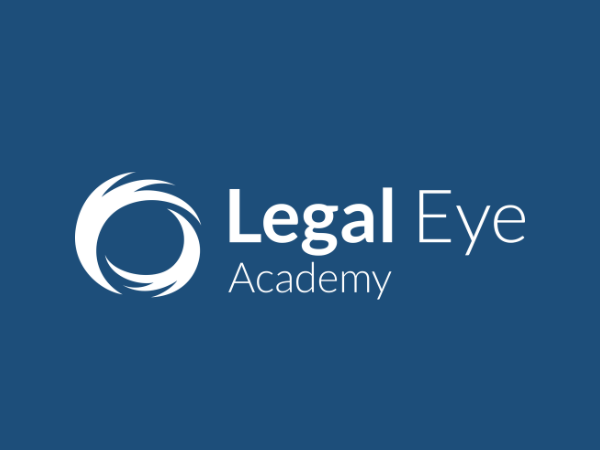Supervision is a critical regulatory requirement for law firms and, more importantly, failure to properly supervise staff can be potentially damaging to your business.
Serious failures can result in the SRA taking action against a firm, its managers, or its employees linked to breaches for which they are responsible. Such measures can include rebukes and hefty fines; but even more damaging is the likely drop in client standards, sub-par representation, reputational damage, and subsequent loss of business that could result should a firm fail to supervise its junior staff.
Neither is it just about fines and punishment. Effective supervision, where people know what is expected of them, where they can turn for help, where they are treated with courtesy and respect, and where they feel confident about reporting any issues, also boosts motivation and morale. This can have a hugely positive impact on the success of your legal business. It’s about empowering rather than inhibiting your team.
The good news is, with robust systems in place, successful staff supervision doesn’t have to be complicated. Here are some practical tips on how to achieve it.
1. Make sure everyone understands the regulatory requirements
You can find supervisory requirements throughout the SRA Standards and Regulations. But the SRA’s core regulatory requirements (which you should read in the context of the latest SRA Principles) can be found in the SRA Code for Solicitors, RELs and RFLs (registered European lawyers and registered foreign lawyers) and the SRA Code for Firms. Lexcel-accredited firms will have some additional supervision requirements.
Don’t make your team wade through these codes to determine what you expect of them. Instead, create a sound, up-to-date, easy-to-understand, and accessible supervision policy to make it easy for them.
2. Put some training in place
Once you have created a supervision policy, training is necessary to ensure it is followed. Every member of your team should understand it. Furthermore, you should also deploy appropriate management training. Just because someone is a good solicitor does not mean they will be a natural or good supervisor.
Only through training will supervisors such as line managers, team leaders and departmental heads understand the scope of the SRA requirements, what is expected of them, and how best to achieve this.
3. Support your people with a robust compliance system
It’s not enough to ensure your people understand what they are accountable for. And you can’t just blame one individual should something go wrong. The entire management team is responsible for supervision within your firm, so you must deploy an effective system. And you need robust oversight and controls to ensure that your supervisors follow the established policies and procedures.
A vital part of this is ensuring supervision is a priority within your firm, with adequate time for supervisory duties. Junior staff should never feel like they cannot approach their line managers. Similarly, firms should encourage trainees to be open about mistakes. Do not create a culture where people try to hide their errors. A best practice system should also include reviews for your supervisors.
Ensuring that you have an effective file review system is also vital. For example, you can demonstrate that your firm’s processes and procedures are working through regular and thorough peer reviews of a random selection of files. While this might seem time-consuming and arduous, outsourcing an independent file review will introduce an extra layer of objectivity and neutrality to the process, and free up time for your staff.
4. Supervise your remote staff effectively
In response to the coronavirus pandemic, many legal staff began working remotely. This has prompted a change in how we all now work, with many law firms committed to adopting a hybrid model with some form of remote working arrangements.
The SRA has confirmed that – as long as sensible arrangements are established so that supervisors can review the work of their trainees – remote working can continue indefinitely. Such arrangements must ensure that the SRA’s core requirements on supervision are upheld. Some of the things to consider when setting up effective systems to supervise remote teams include:
- Establishing how you will manage the remote supervision (e.g. phone calls, video calls, email, etc.). A firm might need to tailor this depending on what best suits the supervised individuals and the work taking place.
- Making sure that clear communication and feedback happen with regular catchups, opportunities to ask questions, and open channels of dialogue.
- Putting tools in place to enable employees to communicate with each other in addition to their line managers.
- Deciding whether an element of in-person supervision is required, and, if so, how often and what format this will take.
Setting up processes to ensure staff wellbeing and morale is prioritised as well as workload. This could include things like supporting employees so that they retain a work/life balance, making sure all staff have the tools they need to do their jobs effectively, ensuring days of overlap in the office, and setting clear expectations.
- Establishing tools (e.g. hardware and software) and policies to ensure supervisors regularly check in with staff.
- Following up calls with an accurate record of what was discussed/agreed so there are no misunderstandings. Sign-off sheets and approvals are also beneficial to ensure no mistakes due to communication breakdowns.
- Looking at suitable career development and training opportunities.
- Examining the risks associated with remote working (especially where trainees are involved) and updating your risk register and data protection policies to reflect these.
The truth is, when done correctly, these considerations should be in play regardless of whether you operate an in-house, hybrid, or fully remote model. Wherever possible, the benefits of working in close proximity should be replicated.
5. Understand what good supervision looks like, and how it benefits your law firm
It’s too easy to focus on the negative aspects of law firm supervision and the consequences should something go wrong. But to achieve best-practice management in your law firm, you must also understand what good supervision looks like and the potential benefits.
While not a comprehensive list, best practice supervision means:
- Understanding the regulatory requirements and having the policies, tools (e.g. regular file reviews), tech and training in place to meet these.
- Creating a culture that treats junior employees with respect, encourages them to be open about any issues/mistakes, and fosters regular two-way communication.
- Understanding that people are unique, that they work differently, and have varying needs. Make sure your policies, processes and people have the flexibility to adapt to an individual’s requirements.
- Ensuring clear expectations and communication which leaves no room for error.
- Effectively training supervisors to ensure that they meet the requirements of their role.
- Creating a culture that prioritises supervision so that it is never seen/treated as a burden.
- Acknowledging the changing nature of law firm supervision – and in particular – remote staff management, and adapting to meet the needs of hybrid/remote working.
- Listening to the needs of trainees (and providing a platform for them to share these needs)
- Appointing expert consultants/partners to help firms to navigate the challenges of supervision where appropriate.
Effective supervision will boost morale, job satisfaction and employee wellbeing. This, in turn, creates a culture where the best people will want to work, where there is less staff turnover, and where the quality of the work is improved. And a happy, productive workforce will have a positive impact when it comes to client satisfaction levels and business generation.
Acting as your ‘professional friend’, at Legal Eye, we reduce the legwork involved needed to carry out regular file reviews. We also bring a fresh perspective and constructive approach to continually improving your risk and compliance systems. Contact us for a detailed review of how we can assist with this important aspect of managing compliance.
 (0)20 3051 2049
(0)20 3051 2049




